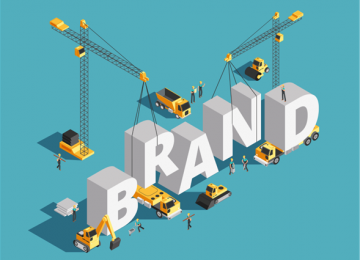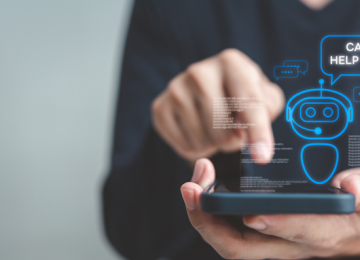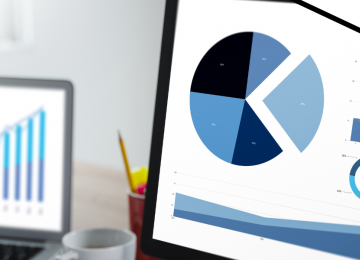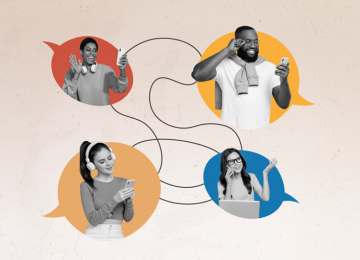SmarketSights Ep 004 - Gap, Marketing Problems, Starbucks, and BlackBerry

About SmarketSights SmarketSights is a blog and podcast series created to discuss the latest industry happenings in marketing, advertising, and sales. We’ll uncover the deeper meaning behind the headlines and analyze what it means for real companies and their marketing, advertising, and sales efforts. SmarketSights will cover everything from Tech to Design to Sports and everything in between. Join us weekly for a new edition! If you have a topic or question you’d like us to cover in SmarketSights, please feel free to email zclark@cowleyweb.com or comment below! GAP CLOSING 175 STORES, LOSES IDENTITYEarlier this week Gap, the clothing retailer, announced it will close 175 stores across North America as it attempts to get back on track after a downward trend in sales over the past several years. As the clothing and retail industries dramatically shift towards online, Gap is reevaluating its strategy for the marketplace. Gap has also seemingly lost touch with its customer base as the brand has lost significant ground in popularity to fast fashion companies like Forever 21. What this Means for You:The significance of this story for a marketer isn’t that the Gap is closing 175 stores (even though that is a significant number), but more about how the company has lost its way. Malls and retail chains across the board are in the trend of thinning out the number of bricks and mortars they have as online shopping keeps growing. But, Gap as a whole has failed to keep up with the changing mindset of their customer base (Teens and 20-somethings). The fashion market has been turning to what’s called “fast fashion,” like Forever 21. Whenever you walk into that store, they always have new clothes, and that’s because it’s what the customers want. Gap hasn’t adjusted and it reflects in their sales. So, what every organization needs to do, regardless of size, is keep pace with their customers and adjust as the market adjusts. It’s sad that the Gap has fell victim to this, but it’s a constant reminder to everyone that if you don’t change, you die. Customers are never going to stop changing how they think and how they want things to be. As a company, we can’t dictate how the consumer wants our product our service. We can only hope to adapt to their needs so we can stay relevant. Or, we face what the Gap is doing. “MARKETING HAS A MARKETING PROBLEM”Michael Brenner, Head of Strategy for NewsCred, contributed an article to Entrepreneur this week titled, “Marketing Has a Marketing Problem.” He goes on to explain how no one can really explain what marketing is anymore and how there is a stark difference between marketing and selling. He has five main points to his article: The world has changed; We are all publishers; We’re in a battle for customer attention; Marketing is a conversation; and We need marketing that gets respect. He ends with, “It's time to focus on helping customers instead of pushing product. Marketing is more than just advertising and it's different from selling. Marketing helps brands communicate with customers by delivering the content they want.” What this Means for You:As marketing people or anyone who interacts with a company’s image in anyway (which is pretty much everyone because every employee is a brand representative), this is a serious issue. Brenner is right, the world around us has changed so significantly that the difference between marketing, advertising, and sales has been lost, especially in a digital age. This rise of content marketing has thrown an even bigger wrench into the cogs as people then again get the lines blurred. So, everyone in the business world needs to realize the difference between marketing and sales, and refocus their efforts. Marketing is there to support the sales process and give sales the tools to succeed. Although different, the two work hand in hand and need to have a clear understanding of what the other is doing. STARBUCKS CLOSING 23 BAKERIESStarbucks bought Bay Bread LLC, the parent company to the La Boulange bakery chain, in 2012 for $100 million. This was in an attempt to diversify the Starbucks brand as something that wasn’t just coffee. However, Starbucks is now saying that they “…determined La Boulange stores are not sustainable for the company’s long-term growth,” and they’re closing most of the bakeries. The company will still sell baked goods in their shops, though. What this Means for You:As with the aforementioned Gap situation who had not kept up with their customers, this is an example of a company trying to be what they’re not. Starbucks is known as a place to get coffee and mooch off of free wifi. Sure, if you’re hungry you can grab a pastry, but no one is going to Starbucks for lunch, they’re going to get their Venti afternoon pick-me-up. So, something that all organizations can take away is the need to stay true to yourself and what you’re good at. There is always a need to diversify and make sure you have a comprehensive offering, but you can’t get away from who you are at your core and being someone you’re not. Starbucks tried to do that, and they took a $100 million bath in it. BLACKBERRY AND SAMSUNG TEAMING UP?Rumors are surfacing that BlackBerry, everyone’s favorite phone from the early 2000’s, may be teaming up with Samsung to run the Android operating system on BlackBerry phones. BlackBerry is also reportedly experimenting with their operating system on other devices. The company is working on a new phone and it could be their first running the Android software. What this Means for You:Regardless if these rumors are true, BlackBerry is finally realizing that they need to shake things up if they want to still be alive. Their co-founder even admitted that they missed the ball on the touch screen wave and the company was in big trouble after the iPhone was introduced in 2007. A BlackBerry and Samsung partnership makes sense, and a BlackBerry phone running Android is an effort to attract a new customer base. BlackBerry will need to do some serious convincing that their device is suited to run Android, especially with the stigma it has. This move will also begin to alienate the remaining true BlackBerry users (which is probably for the better). So, what we can learn from BlackBerry is the need to make strategic partnerships as our businesses mature and the market changes. BlackBerry is a company that, for all intensive purposes, stood still for a lot of years and didn’t make any big product changes like this until now. As an organization, we can’t stand still like that, and even though we aren’t the same company we were 10 years ago, we’re still moving forward and doing what we need to do to survive. |
 Stay InTOUCHSign up here to get our monthly newsletter and blog updates. |





